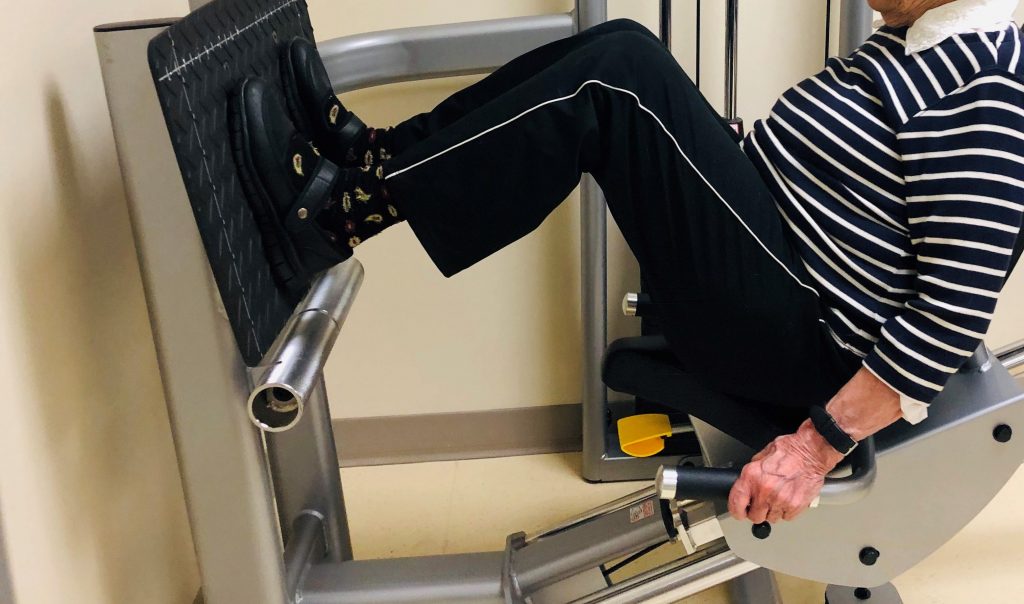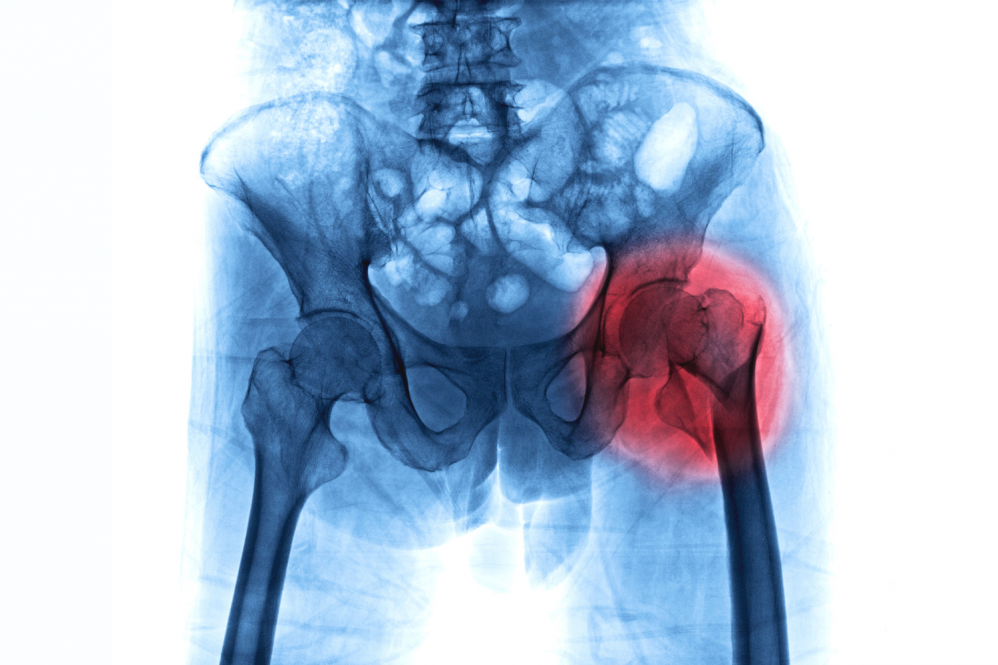Results from a recent multi-center, randomized, controlled trial demonstrate that testosterone gel does not improve long-distance mobility compared to exercise alone in older women recovering from a hip fracture.
The STEP-HI (Starting a Testosterone and Exercise Program after Hip Injury) study results were published in JAMA Network Open on May 15. This is to date the largest study of testosterone administration to women following a fracture of the hip.
UConn Center on Aging was a clinical trial site for the national STEP-HI study since its launch in 2018.
Threat of Broken Hips in Older Women
“Historically, despite dramatic advances in surgical techniques, nearly three out of four older women fail to regain their previous level of function following hip fracture even when followed by the usual level of rehabilitation,” shares study co-author Dr. George Kuchel, director of the UConn Center on Aging.
In fact, hip fractures are the most serious type of osteoporotic fracture, as they are accompanied by considerable pain, loss of muscular and bone strength, reduced mobility and independence with daily activities, and increased risk for future fractures and death. After a hip fracture, patients undergo surgery to repair the broken bone, followed by a period of rehabilitation.

Results of the STEP-HI Clinical Trial
The large STEP-HI study focused on interventions intended to improve outcomes after standard therapy was completed. The study, “Effects of Exercise Training and Testosterone Therapy in Older Women after Hip Fracture: A Randomized Clinical Trial,” provides valuable information that does not support adding low-dose testosterone to exercise in women recovering from a hip fracture to improve long-distance mobility. Testosterone is a hormone present in all women that declines with age. It has effects on muscle that were hypothesized to augment the benefits of exercise during the recovery period.
The study was a randomized, double-blind clinical trial that enrolled women aged ≥ 65 years who had a recent surgical repair of a hip fracture, met objective criteria for mobility impairment, and were community-dwelling. Participants (n=129) were recruited from 8 clinical sites in the United States between February 2018 and February 2023.
Key findings of the study include:
- 24 weeks of supervised exercise combined with testosterone therapy did not significantly improve Six Minute Walk Distance (a measure of long-distance mobility) compared to supervised exercise alone. This suggests that adding testosterone to exercise may not provide further benefits beyond exercise itself in terms of long-distance mobility in older women post hip fracture.
- Adding testosterone therapy to exercise had positive effects on short-distance mobility and balance, while also reducing the requirement of assistive walking devices at the end of the study. These secondary findings will require further research to confirm.
Jenna M. Bartley, Ph.D., study co-author from the UConn Center on Aging’s clinical trial site, was UConn’s co-lead investigator with Kuchel and Richard Fortinsky, Ph.D.
“While we did not see improvements with testosterone in endurance activities, these findings are important for our understanding of how older women can best recover from hip fracture. While we thought that adding an anabolic agent like testosterone would aid in mobility improvements, we did not see a benefit in that aspect. We did see a benefit of testosterone in other functional domains, but more research is needed to confirm those findings,” Bartley reports.
Kuchel, director of the UConn Center on Aging, agrees.
“Our findings did not demonstrate any additional benefits in long-distance mobility of testosterone replacement beyond the positive effects of exercise. However, our findings confirm that more intense and sustained exercise protocols are well-tolerated by older women and can result in substantial functional improvements.”
Kuchel stresses a secondary post hoc finding of the study that needs further investigation.
“Among women who required a walker or cane at baseline, those who were randomized to receive exercise and testosterone replacement were more likely to be able to walk without a cane or walker 6 months later as compared to women receiving only exercise or usual care. These findings will require future study and further confirmation,” says Kuchel of UConn.
Striking Impact of Strength Training for Older Women at UConn Center on Aging
“What was most striking from our STEP-HI study was how well the older women performed the progressive resistance training and how much they improved over the course of the study,” says Bartley at UConn.
She says while some women were hesitant at first, by the end of the study some were leg pressing over 100lbs!
“It was really impressive to see the progress over time from these women. It really is never too late to start an exercise training program!” Bartley advises.
Also, Bartley shared how progressive resistance training for 6 months led to huge improvements in functional outcomes.
‘‘The power of weight training is really impressive, even in these older women. This research really highlighted how older women can benefit from weight training despite being recently injured or more frail,” concludes Bartley.
The study team of co-authors concluded overall that: “Although testosterone did not provide the functional benefits to older women recovering from a hip fracture that we were expecting, our study offers valuable information on the importance of exercise and other treatments during recovery,” wrote the study co-authors led by Dr. Ellen F. Binder of Washington University School of Medicine in St. Louis.
Other study co-authors include: Sarah D. Berry, MD, MPH, Peter Doré, MS, Steven R. Fisher, PT, PhD, Richard H. Fortinsky, PhD, Camelia Guild, MPH, Douglas P. Kiel, MD, MPH, Robin L. Marcus, PT, PhD, Christine M. McDonough, PT, PhD, Kelly M. Monroe, MSW, Denise Orwig, PhD, Rocco Paluch, MA, Dominic Reeds, MD, Jennifer Stevens-Lapsley, PT, PhD, Elena Volpi, MD, PhD, Kenneth B. Schechtman, PhD, and Jay Magaziner, PhD.
The JAMA Network Open study co-authors are faculty at Washington University School of Medicine in St. Louis, the UConn Center on Aging, Hinda and Arthur Marcus Institute for Aging Research, Hebrew Senior Life and the Department of Medicine, Beth Israel Deaconess Medical Center and Harvard Medical School, University of Texas Medical Branch, University of Utah, University of Pittsburgh. University at Buffalo, University of Colorado, UT Health San Antonio, San Antonio GRECC, Sealy Center on Aging, and the University of Texas Medical Branch.
This work is in part supported by the following grants: The National Institute on Aging provided funding and supervision for STEP-HI under award numbers: R21 AG023716, R34 AG040257, R01 AG051647, P30 AG067988 (UConn Older Americans Independence Pepper Center), P30 AG024832, P30 AG028747. Support for STEP-HI at the Baltimore site was also provided by the Baltimore Veterans Affairs Medical Center Geriatric Research, Education, and Clinical Centers (GRECC).



